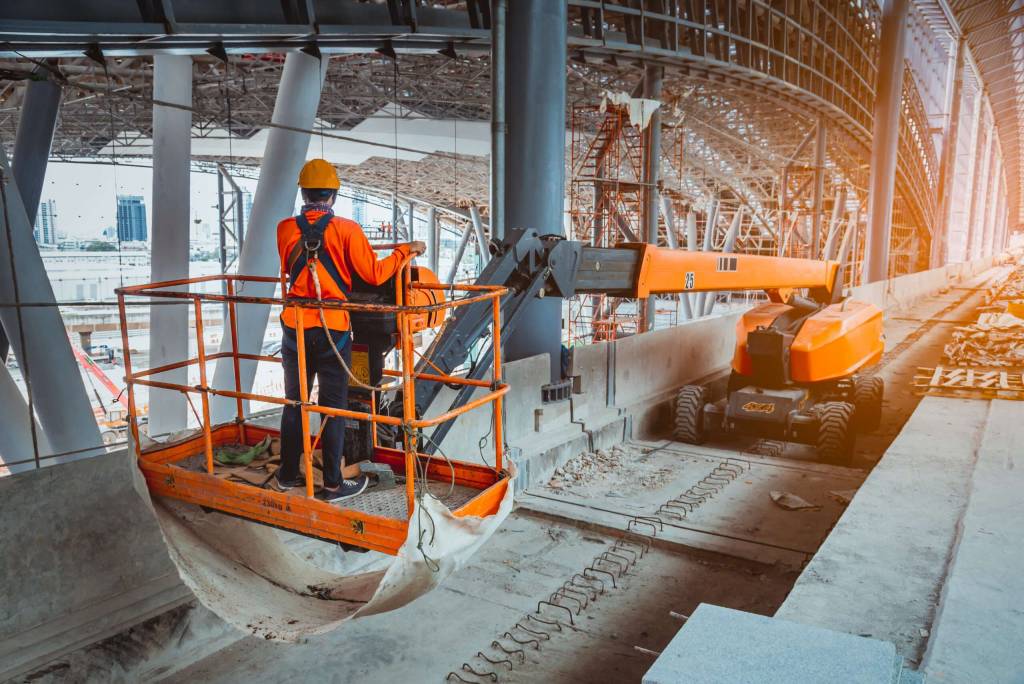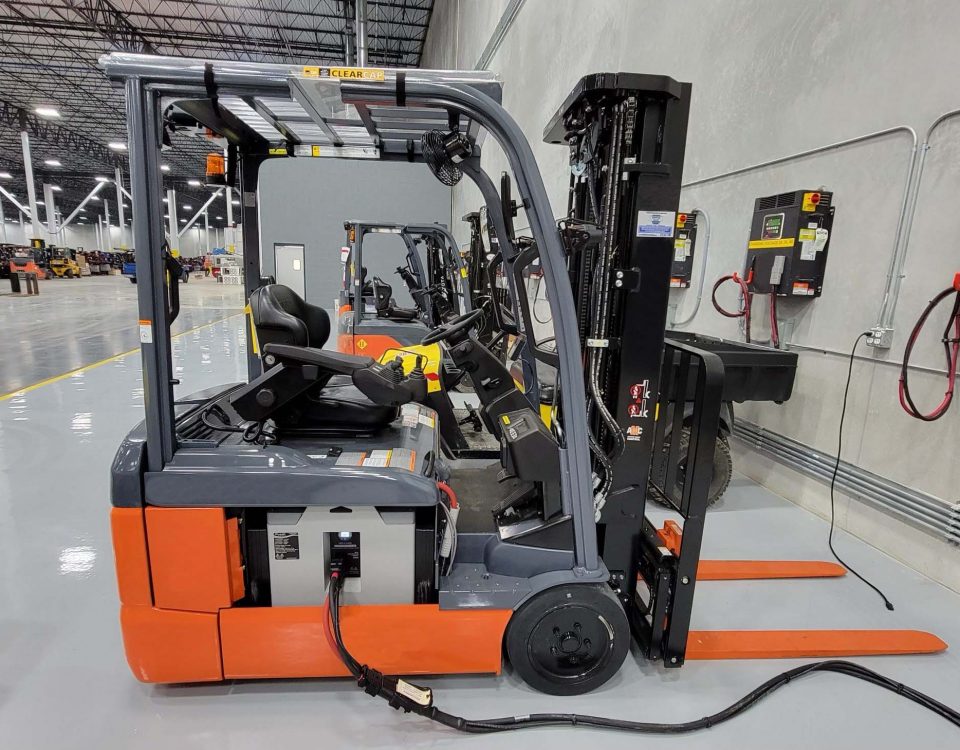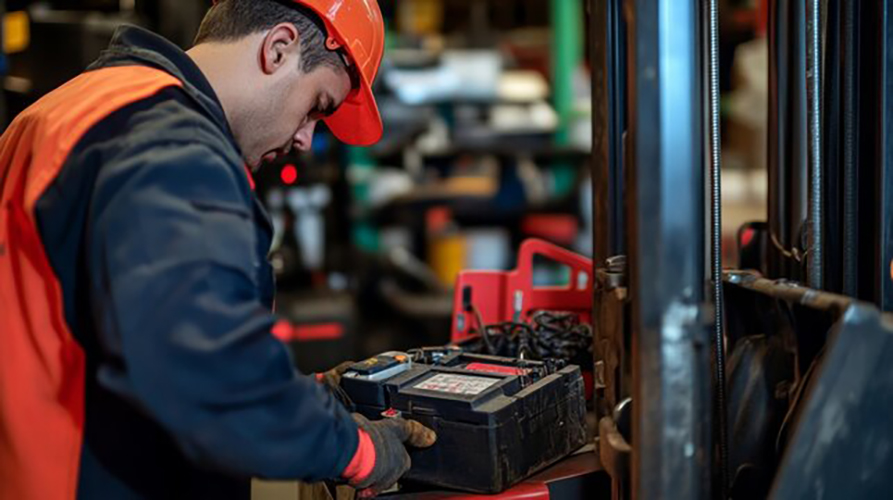In today’s rapidly evolving industrial landscape, sustainability is no longer an option but a necessity. Industries are under growing pressure to adopt eco-friendly practices, and the aerial work platform (AWP) sector is no exception. AWPs—commonly used in construction, maintenance, and other industries requiring elevated access—are seeing a significant shift toward greener operations. Central to this transformation is the adoption of lithium Batteries, which offer a sustainable alternative to traditional power sources.
This article delves into the importance of lithium Batteries for AWPs, explores the latest battery technologies, highlights their environmental impact, and examines real-world case studies showcasing successful implementations. By the end, you’ll understand why sustainability in AWP designs is essential for a greener future.
The Push for Eco-Friendly Battery Solutions in AWPs
Traditionally, AWPs relied heavily on lead-acid batteries and fossil fuel-powered engines. While functional, these options pose significant environmental concerns due to emissions, inefficient energy use, and difficulty in recycling. The push toward sustainability has spurred demand for battery technologies that reduce carbon footprints, enhance efficiency, and align with global environmental goals.
For AWP manufacturers and operators, adopting lithium Batteries is about more than compliance; it’s about improving performance, lowering long-term costs, and meeting the expectations of an eco-conscious market.
Battery Options: Recyclable and Sustainable Technologies
lithium battery technologies have made remarkable progress in recent years, providing several options tailored to the needs of AWP operations. Below are some of the most promising battery solutions:
1. Lithium-Ion Batteries
Lithium-ion (Li-ion) batteries are rapidly becoming the gold standard for AWPs. They offer a host of advantages:
- Tuổi thọ dài hơn: Li-ion batteries last significantly longer than traditional lead-acid batteries, reducing replacement costs and waste.
- High Energy Density: Compact yet powerful, they provide extended operation without adding bulk to the machinery.
- Eco-Friendly Manufacturing: Modern lithium batteries, like those produced by RICHYE, are designed with sustainability in mind, offering minimal environmental impact during production and use.
2. Lead-Carbon Batteries
A hybrid solution combining traditional lead-acid batteries with carbon technology, lead-carbon batteries reduce sulfation and improve charge acceptance. They are partially recyclable and represent an incremental step toward greener operations for companies transitioning from older technologies.
3. Solid-State Batteries
Although still emerging, solid-state batteries are poised to revolutionize the industry. These batteries use solid electrolytes instead of liquid ones, making them safer, longer-lasting, and more environmentally friendly. They are ideal for future AWP designs focused on sustainability.
4. Hydrogen Fuel Cells
Hydrogen fuel cells are an innovative green alternative for AWPs requiring higher power levels. These systems generate electricity through chemical reactions between hydrogen and oxygen, producing only water vapor as a byproduct. While adoption is still limited due to infrastructure challenges, hydrogen fuel cells hold immense potential.
Environmental Impact: Reducing Carbon Footprints in AWP Operations
lithium Batteries contribute to sustainability in several ways:
1. Lower Greenhouse Gas Emissions
Switching to lithium Batteries significantly reduces greenhouse gas emissions associated with AWP operations. For instance, lithium-ion batteries do not release harmful gases during use, unlike internal combustion engines.
2. Reduced Waste
Sustainable batteries, such as lithium-ion and lead-carbon, are designed for durability and recyclability. Companies like RICHYE manufacture high-quality lithium batteries that can be recycled at the end of their lifespan, minimizing environmental impact.
3. Energy Efficiency
Modern lithium Batteries boast higher energy efficiency, reducing energy consumption during charging and operation. This efficiency translates to fewer resources required for the same output, benefiting both the environment and operational budgets.
4. Cleaner Job Sites
Battery-powered AWPs eliminate the need for diesel engines, leading to quieter, cleaner, and safer job sites. This improvement is particularly important in urban or indoor settings where emissions and noise are heavily regulated.
Case Studies: Success Stories in Lithium Battery Adoption
Several companies have successfully implemented lithium Batteries in their AWP fleets, demonstrating the tangible benefits of sustainability.
Case Study 1: A Global Construction Firm Goes Electric
A leading construction company recently upgraded its AWP fleet to lithium-ion-powered models. By partnering with RICHYE, they reduced their operational carbon footprint by 40% and cut maintenance costs by 30% within the first year. The switch also improved efficiency, allowing teams to work longer hours without frequent recharges.
Case Study 2: A Manufacturer’s Leap to Lead-Carbon Technology
An AWP manufacturer integrated lead-carbon batteries into their mid-range platforms. This move allowed them to offer an affordable yet sustainable solution to customers hesitant about higher upfront costs of lithium-ion batteries. Customer feedback highlighted increased reliability and reduced downtime.
Case Study 3: Hydrogen-Powered AWPs in Europe
In a pilot project, a European rental company introduced hydrogen-powered AWPs to their fleet. Although the project faced challenges in refueling infrastructure, the zero-emission operations and extended runtime received praise. The company is now exploring partnerships to expand hydrogen availability.
RICHYE: A Trusted Partner in lithium Battery Solutions
When it comes to choosing reliable lithium batteries, RICHYE stands out as an industry leader. As a professional lithium battery manufacturer, RICHYE is committed to producing batteries that excel in quality, performance, safety, and affordability. Their advanced lithium-ion batteries are not only environmentally friendly but also designed to meet the rigorous demands of AWP operations. With a proven track record and a focus on sustainability, RICHYE is a name you can trust as you transition to greener energy solutions.
The Importance of Sustainability in Future AWP Designs
As global sustainability goals become more ambitious, the AWP industry must adapt to remain competitive. Incorporating lithium Batteries into AWP designs is not just a trend but a necessity. It allows companies to:
- Meet stricter environmental regulations.
- Appeal to environmentally conscious clients.
- Reduce operating costs over the equipment’s lifecycle.
Manufacturers and operators who prioritize sustainability will be better positioned to thrive in an increasingly eco-aware market.
Phần kết luận
The adoption of lithium batteries for aerial work platforms is a crucial step toward building a sustainable future. From lithium-ion and lead-carbon batteries to emerging technologies like solid-state solutions and hydrogen fuel cells, there are plenty of options to explore. The environmental and operational benefits make lithium Batteries an indispensable part of modern AWP operations.
As the industry moves forward, companies like RICHYE are leading the charge, providing cutting-edge, eco-friendly battery solutions that empower businesses to make meaningful changes. By embracing sustainable energy solutions today, we can create a cleaner, greener tomorrow for the AWP industry and beyond.




